Find out what our graduates have to say about the Systems Medicine Program.
M.S. Alumni

Rael Memnon
Growing up, I knew I wanted to do something in terms of medicine. But I wasn’t quite sure of how to go about it because I grew up in Haiti, moved to the US, and was the first to tread these waters in my family. I knew I loved every subject ranging from literature, biochemistry, to computer science, albeit I never knew how to integrate all these beautiful subjects into my path to medicine. At least not until I found the Systems Medicine program here at Georgetown University, an interdisciplinary subject that seeks to treat patients through a systemic lens, rather than a symptoms-focused lens.
Throughout the program, my discipline, time management, and confidence grew with the help of Dr. V. Through this program, she affirmed me that I can achieve anything I put my mind to. Dr. V saw my passions and presented me with opportunities like those through my internship with the Retina Group of Washington. This experience culminated into me incorporating what I had previously learned in the Application of Biostatistics to Big Data course with Dr. Raj, into real, clinical applications. Besides her invaluable mentorship and the program’s rigorous coursework that can be personalized to one’s need, Dr. V also went above and beyond to equip us with a Jack Westin MCAT Course.
Even after the program ended, Dr. V remained in my corner, guiding me as a mentor and life coach really. The systems medicine program not only transformed my views on patient care, but it also placed me at the forefront of innovation in terms of AI application to medicine, equipped me with life lessons that I will take with me marching forward, and professional opportunities /advice that has affirmed and shined a light on the road that lies ahead for me. It helped me to clarify what I want to pursue in medicine, my purpose, and I was able to take many lessons with me that I will now hold on to forever! Thank You Dr. V for your unwavering support, I know that you ALWAYS have my back!
Rael Memnon (M.S. ’25)
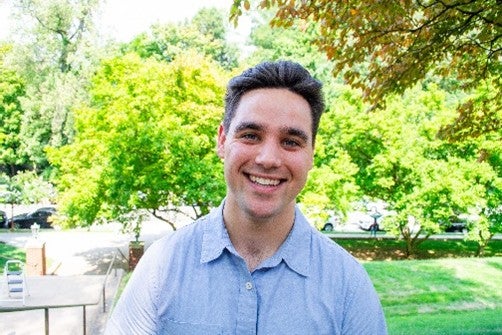
Matthew Kleinman
My time in the Systems Medicine program at Georgetown was truly transformative. I enrolled, hoping for a graduate degree that would strengthen my medical school application and help me land a good job. What I found went far beyond that. I left the program feeling confident in myself as a student again, equipped with tools to succeed in medical school, and inspired to do more in my career.
Coming in, I had a low undergraduate GPA, had been out of school for a couple of years, and wasn’t sure how I’d stack up in a rigorous academic setting. The SYSM program helped me develop stronger study habits, improve my time management, and prove to myself that I could handle the demands of a medical education. The curriculum helped push me to improve without being overwhelming, allowing me to make great strides.
Dr. V, the program director, is the most impactful educator I’ve ever had. She goes above and beyond for her students—not just in the classroom, but in every aspect of our growth. She believed in me from the start, encouraged me when I doubted myself, and pushed me in all the right ways. Even now, she continues to support and cheer me on. Her mentorship has made a lasting impact on my path, and I know all alumni share the same sentiment and love for Dr. V.
One of the most meaningful parts of the program was the community. As VP of the Systems Medicine Club, I got to see behind the scenes how much work goes into making the student experience so supportive. The size of the cohort was just right—big enough to meet a variety of people, but small enough to still feel close. Everyone looked out for each other, and that sense of belonging made a huge difference. I’m walking away from this program not just with knowledge, but with friendships and relationships that I’ll carry with me long after graduation.
The content of the program is also incredibly relevant. Systems Medicine sits at the intersection of big data, AI, and personalized care, which is exactly where medicine is headed. I interacted with professionals across research, policy, and clinical care, which helped me broaden my vision of the kind of doctor I want to be. This program isn’t just about getting you into medical school or taking the next step in your career. It’s about helping you become a more thoughtful, future-minded contributor to the healthcare field.
If you’re on the fence, I can only speak from experience: the Systems Medicine program changed everything for me. It gave me a chance to prove myself, helped me grow in unexpected ways, and surrounded me with people who genuinely care. I’m a better student, person, and future doctor because of it.
Matthew Kleinman (M.S. ’25)

Shruthi Shyam
The Systems Medicine Master’s Program at Georgetown University changed my life. Before starting the program, I knew I wanted to be impactful in the field of medicine, but felt pulled in multiple directions with no clear understanding of how to blend my interests in clinical care and research. Over the past year, this program not only gave me clarity in my professional direction but also provided me with confidence, a strong community, and the technical skillset I needed to pursue my path.
The interdisciplinary curriculum constantly challenged me to think differently, whether that was interpreting genomic data in the context of patient care or exploring the systems-wide impact of the microbiome or considering ethical dilemmas in genetic testing. However, even more than the coursework, the mentorship and culture of the Systems Medicine program left a lasting impact on me. Dr. Vasudevan is the rare kind of leader who sees her students not just for who they are but who they can become. She dedicates time to each student to help them reach their full potential. It was her unwavering belief in my potential that helped me reframe my purpose and fortified my desire to pursue a medical career.
Through my internship and the coursework in the program, I realized how deeply I care about translational research that directly improves patient outcomes, especially in under-researched areas such as maternal health. I now leave this program feeling more equipped than ever to build a meaningful career at the intersection of precision medicine and human dignity. Systems Medicine gave me my “why” and reignited my passion – for that, I will be forever grateful.
Shruthi Shyam (M.S. ’25)

Kimberly Rivera Velez
For most of my twenties, I chased the idea of becoming a doctor, but that spark where passion meets purpose was missing. Then everything changed with a single podcast episode. Listening to Leroy Hood and Nathan Price on Armchair Expert, I discovered systems medicine for the first time. Within a week, I was researching programs, attending Georgetown’s info session, and meeting Dr. V, whose infectious passion transformed my curiosity into certainty.
The Systems Medicine Master’s Program has been transformative in ways I never expected. For the first time in my academic career, I was genuinely challenged and pushed to limits I didn’t even know I had. What makes this program exceptional is how it adapts to each student’s passion. While I dove deep into computational methods, other classmates pursued equally rigorous paths in wet lab research or clinical applications. The program shapes itself around your interests while ensuring everyone masters the core principles of systems thinking. By the second semester, I found myself building machine learning models and debugging code late at night despite having no programming experience before starting the program. In that sweet spot between challenge and choice, I found my flow, where excellence isn’t forced but comes naturally from doing what you love.
What began as uncertainty about medical school has crystallized into a clear purpose. Through this program, I’ve discovered a universe of possibilities in AI, computational biology, and statistics that I never knew existed. My trajectory has shifted from a singular focus on medical school to exploring MD/PhD and PhD programs. As I write this, I have started an internship at AIColab at MedStar Hospital, a direct result of the skills and connections this program provided.
Even for those certain about medical school, this program will set you apart. The physicians who will take the lead in shaping the future of healthcare will be those who can leverage both traditional methods and computational tools. This program gives you that edge, making you not just a competitive applicant but a future doctor prepared for how medicine will actually be practiced.
I am forever grateful to Dr. V and the rest of the faculty for their exceptional mentorship and for creating a program that doesn’t just educate but transforms. To anyone feeling stuck in their academic journey, wondering if there’s something more, there is. Sometimes the path to your purpose isn’t linear; it’s a systems approach.
Kimberly Rivera Velez (M.S. ’25)
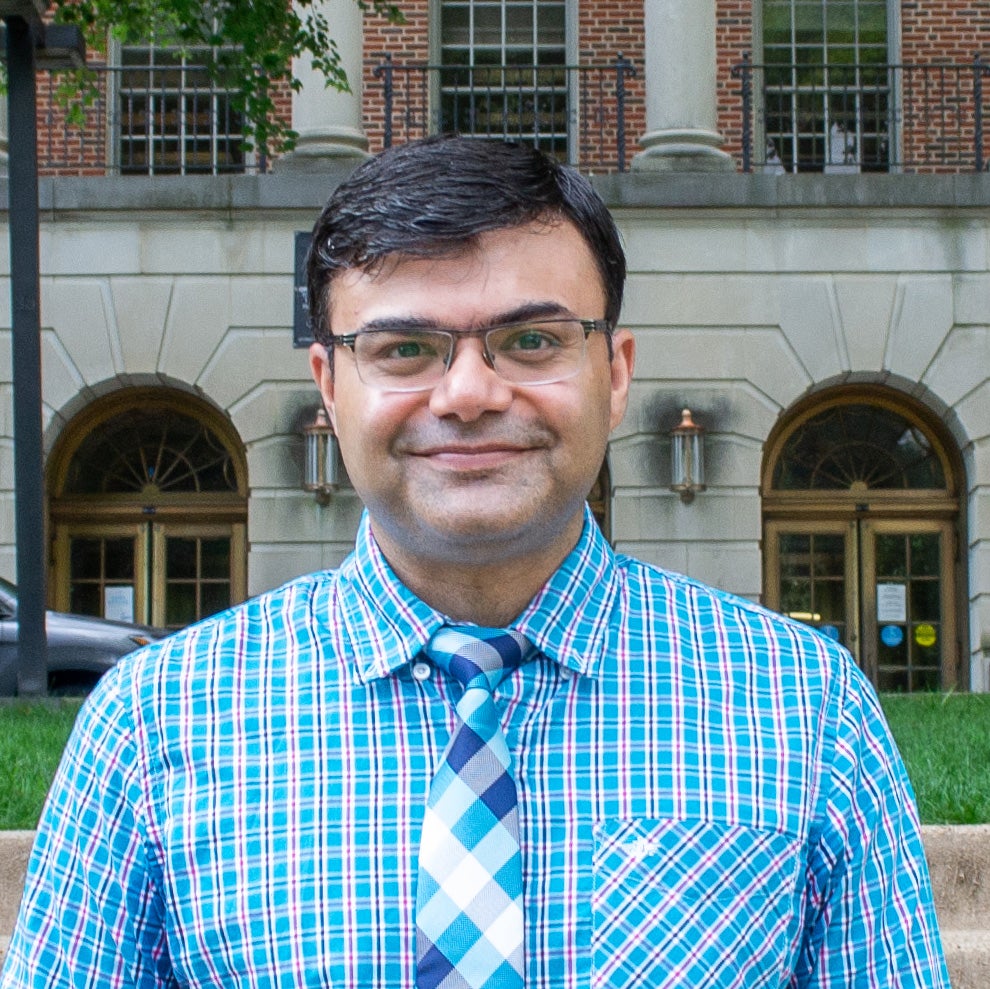
Nabeel Kamal Qureshi
In my quest to expand my qualifications and expertise in line with my medical and public
health background, I came across the Georgetown’s Systems Medicine program, which
immediately captured my attention. My longstanding interest lies in understanding the
variables responsible for individual-level differences that can significantly impact
treatment outcomes. While these variables can be numerous and complex, the Systems
Medicine program appeared to offer a comprehensive approach to this challenge.
Upon further exploration, I became convinced that this program has the potential to
revolutionize the approach to futuristic medicine. I decided to reach out to Dr. V, who
provided an exceptional explanation of the program’s scope and the future direction of
medicine. In today’s rapidly evolving world, especially with the advent of AI, the
transformation in healthcare is unprecedented. Envisioning a scenario where treatment
is tailored precisely to an individual’s genomic and social profile is no longer a distant
dream but an emerging reality that Systems Medicine is designed to explore through
various means, including but not limited to “Big Data.”
Although the field is relatively young, it is swiftly establishing itself as the future direction
of research and medicine. The combination of courses offered in this program are not
only unique but are meticulously designed to enhance both knowledge and essential
skills. These skills are crucial for contributing to and transforming current research
methodologies and medical practices. Moreover, under the visionary leadership of Dr. V,
the program continually integrates innovative ideas and changes, along with
collaborations with highly reputable global institutions and organizations.
Enrolling in this program has proven to be one of the most impactful decisions of my
career. It has provided me with invaluable insights into the future trajectory of medicine.
I am profoundly grateful to all my instructors and mentors for their guidance and
support. I am now equipped with the knowledge and skills necessary to contribute
meaningfully to societal health advancements through the insights gained from this
program.
Nabeel Kamal Qureshi (M.S. ’24)
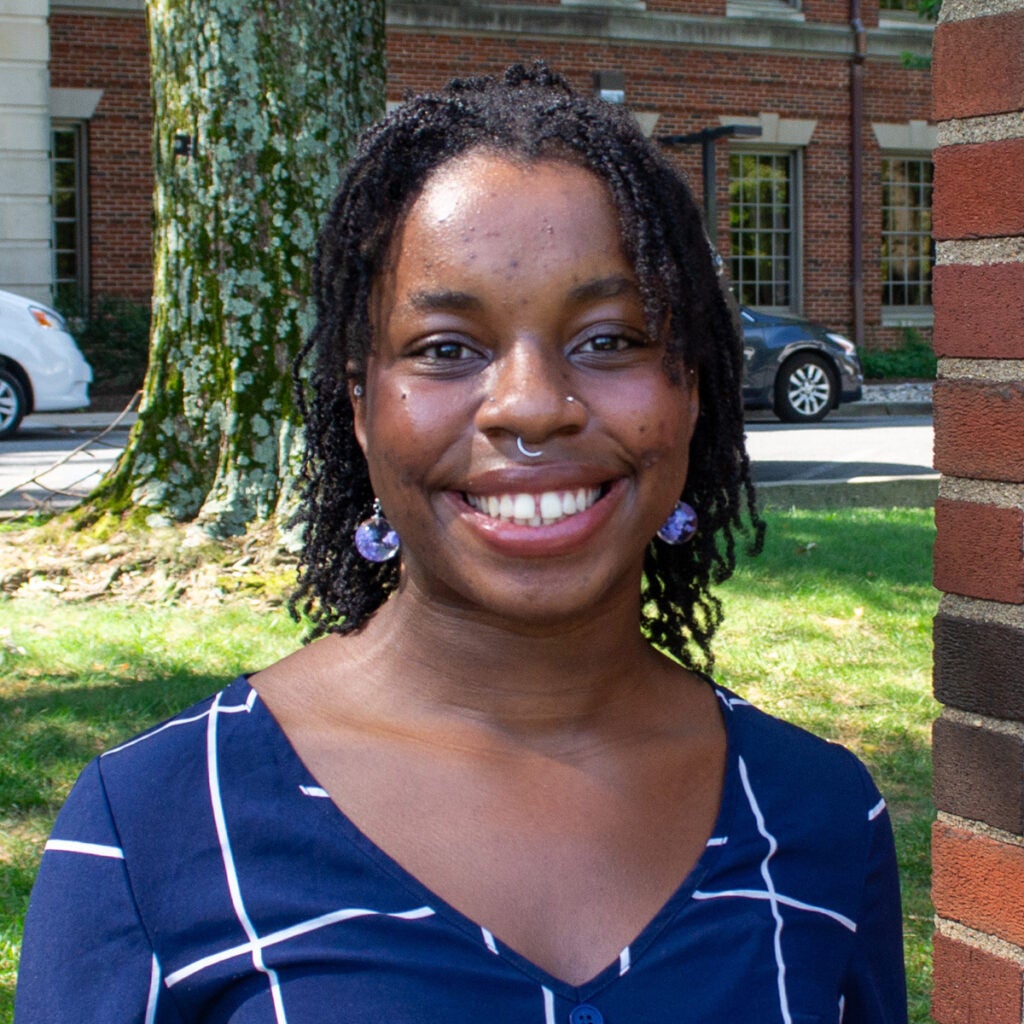
Chizobam Ugboaja
The road to higher education is often fraught with obstacles. But the opportunity to obtain a Master’s in Systems Medicine at Georgetown is a privilege that I will remain grateful for in years to come.
In my senior year of college, I knew that I was not ready to apply to medical school or pursue a Ph.D., but I also did not know what was missing. I sought out and applied to different master’s programs but the Systems Medicine program stood out to me for obvious reasons: It was the first of its kind. I respect pioneering innovations because they create space for more people to participate in the field, and shoulder barriers of uncertainty. The Systems Medicine program is no different. It is designed to push candidates to investigate, innovate, and invest in the future and present of medicine.
Dr. Sona Vasudevan, the program director, knows a lot about systems thinking in science, and its necessity for improved medical outcomes. More importantly, she knows even more about teaching, and raising individuals equipped to serve society while being the best at what they do. I have nothing but the highest regard for her, and the work she is doing, and has done with the program. Her willingness to listen and evolve, and her capacity to love and serve her students far beyond what is asked of her, has served myself and my colleagues well. It is the gift that keeps on giving.
I left this program with a sense of what I was missing as an applicant, a deeper appreciation for the vocation of medicine, and a knowledge of what needs to be done in the field, for more patients to thrive. I learned about the importance of data-driven decision-making, and best practices to access and utilize said data. I am also very grateful for the diverse professionals whom I encountered during my time at the program. From Peru to Germany to the heart of health policy here in D.C., each one of them was excellent at their fields and at teaching us, embodying the need for a global approach to precision medicine and systems medicine as a whole.
I can go on and on about the cohesiveness of my cohort, the thoughtfulness of the faculty, and the grace and sensitivity with which Dr. V dealt with us as individuals but I will like to end it with two things:
- This program practices what it preaches, and will open your eyes to what you need for higher education.
- This program will be your best decision for years to come.
Chizobam Ugboaja (M.S. ’24)

Miranda Ortega
“The Systems Medicine Master’s Program has been an immensely enriching and transformative experience for me. This program has not only taught me the skills necessary to be a part of cutting-edge biomedical research, but it has also given me the opportunity to learn from expert scientists and physicians who put systems medicine into practice. Systems medicine is highly interdisciplinary, lying at the intersection of bioinformatics, molecular biology, genomics, and more. The program has equipped me with a skillset that covers all of these fields, ranging from structural biology techniques, to RNA-sequencing workflows, to R programming for biostatistics. The hands-on nature of the curriculum has allowed me to gain practical experience and has greatly complemented the biology background that I had coming out of undergrad. This is perfectly exemplified by the internship portion of the program, in which each student is able to choose a research project that aligns with their professional goals and their personal interests. I completed a project focused on fibrosis in pancreatic cancer, which combined my interests in oncology, lab work, and bioinformatics. By working with and learning from my amazing mentors, I was able to see the impact of translational work and drug repurposing firsthand.
In addition to the thoughtfully designed curriculum, the faculty’s dedication to the students in the program truly made this experience invaluable. Dr. V, the director of the Systems Medicine program, has been a guiding force for me since day one of the program. Not only has she helped me grow academically and professionally, but she has also been instrumental in my own personal growth. She is truly one-of-a-kind, and I feel so lucky to have her as a mentor in my corner. I cannot thank her enough for the unwavering support, time, and guidance that she has given me throughout the past year. In addition to Dr. V, each and every professor that taught me during the program contributed significantly to my learning experience. Their expertise, passion, and willingness to go the extra mile have been a great source of inspiration for me. This group of faculty, alongside my amazing classmates, fostered a collaborative and motivating environment that encouraged exploration, critical thinking, and personal development. The sense of community and shared purpose within the Systems Medicine family is truly unparalleled.
I highly recommend the Systems Medicine Master’s Program to anyone looking to advance their career in the biomedical sciences, whether their long-term goal is research or patient care. This program is very special – providing a comprehensive education, lots of hands-on experience, and the guidance of exceptional mentors – making it an ideal stepping-stone towards a career in the innovative and rapidly evolving field of systems medicine. I’m immensely grateful to have had this experience and cannot thank my mentors, professors, classmates, or Dr. V enough.”
Miranda Ortega (M.S. ’24)
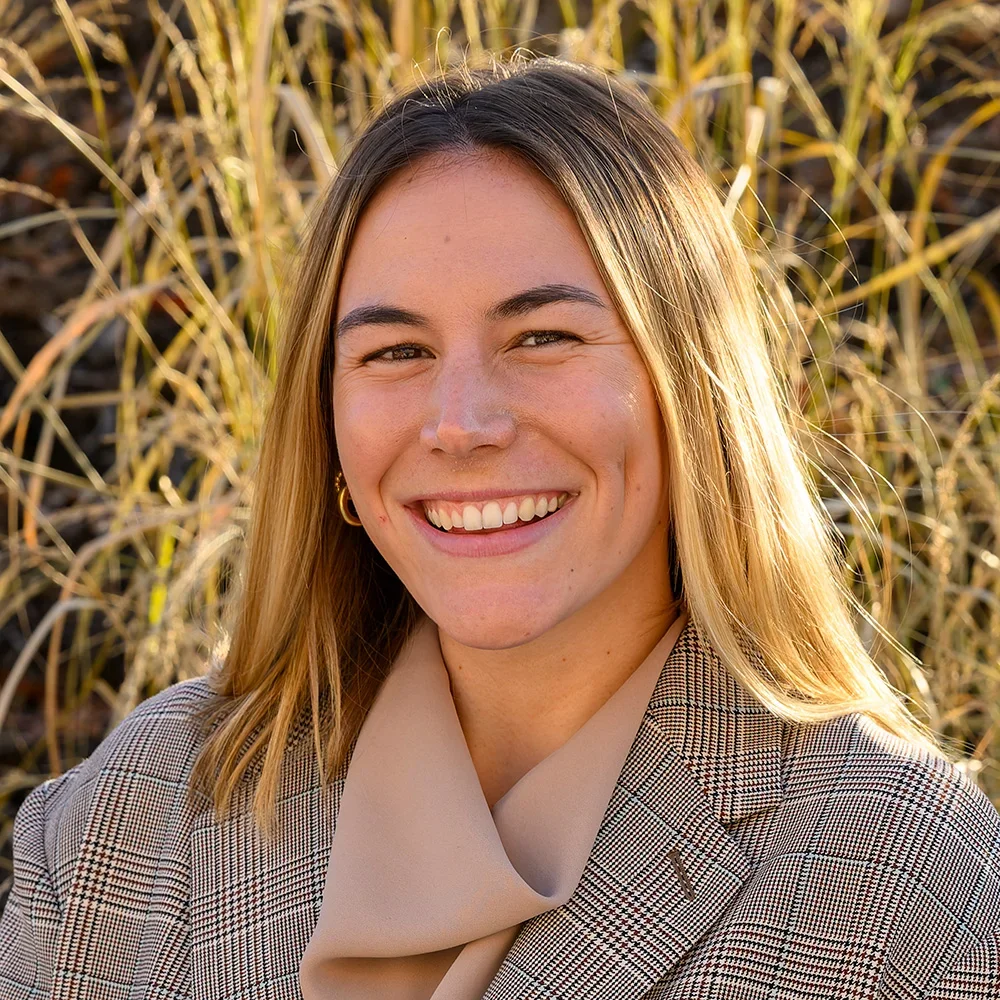
Rachael Holp
“The last 12 months have been the most impactful 12 months of my life. I have learned a lot through school and life so far, and I am incredibly grateful for many of the experiences I have had that have pushed me to be the best version of myself, even if it has been incredibly uncomfortable and challenging. I would not change or take away those experiences for anything. Most of these experiences and troubles were not conventional and required a lot of mental and physical strength, but they shaped me to who I am today. So, when I ultimately decided to change my plans last summer, I could have never imagined that I would have landed in the Systems Medicine Master’s Program, but let me tell you, it was the best decision I have ever made. Sometimes in life, things align and work so perfectly (with some effort of course) that even if that leap, step or decision is scary, there is peace in knowing it was meant to be. That is precisely how I felt about joining this program. To spare you most of the details, I had yet to even graduate from my undergraduate institution when I applied to the Systems Medicine program. And while it might seem confusing or troubling how I ended up where I am, it was actually seamless and with a few emails to figure out the moving pieces, landed me where I am today.
I cannot thank Dr. V enough for how she has impacted and improved my life. I knew a few things about the program and what I was signing up for, but I could have never been prepared for the amount of learning and growth I would experience during my time in the program. I learned more in the past year than ever, and I am walking into the medical school application process with an entirely new perspective about what it means to be a physician and how I can impact others’ lives. Dr. V is the most caring, genuine, smart, purposeful, kind and helpful person I have ever met. From day one she has always believed in me, most times way more than I ever believe in myself. She has helped me become a better public speaker, a more intelligent writer, and thoughtful thinker, a more motivated student and overall a better person. She cares for me and all of my other peers as one of her own, and as a very sensitive, intuitive and empathetic person, I could not think of a better way to flourish under someone that cares so much about me.
This program helped me realize that it is simply not “enough” to want to become a physician. Yes, you need the passion and drive and want to become one, but ultimately that is not what makes a good physician. A good physician requires extreme compassion, the capability to think critically in all scenarios, to push the boundaries and limits of what we know is true to discover new life-changing information. It requires us to view the whole body as a system, not to treat people and their symptoms as broken parts with a “quick fix” such as a pill or surgery.
Patience is a virtue in our field, speckled with many sleepless nights. I find myself constantly motivated by the fact that there is SO much research to be done, and clinical practices to change so that patients can receive the adequate treatment to help them lead the healthiest life they deserve. Systems medicine is much more than just analyzing big data and informing the change of clinical practices – it is about treating the root cause of a disease, it is about cultivating an undying curiosity for the way the human body works, it is about finding the areas you are passionate about and going above and beyond to learn more about where we can help change science and medicine in a positive way. It is about how to shed light on under-researched and understudied areas. It is about serving others and doing the sometimes not so glamorous or fun work. It is about a constant and relentless pursuit of the truth for the common good of the people.
I often get asked, “Oh, so what did you get your master’s in?” to which I respond, “Systems Medicine,” and then explain a little bit about what I’ve done and learned. Most people have not heard of it and are often curious to ask more. They start to think and realize just how much it is different and exciting and they usually comment by saying, “Wow, well why isn’t everyone in that program?” I usually nod my head and respond in complete agreement with these people. It is funny how something such as Systems Medicine seems like such a foreign concept to people, but ultimately it is how all of society should think and act. It is vital to the progress of science and medicine, but more importantly, society.
If you are getting ready to enter this program, or even just thinking about it, rest assured that Dr. V will completely change your life. This program is actively creating and cultivating leaders who are passionate not just to make a difference in the world, but to change it. I will forever be indebted to Dr. V and my time in the program. Without her, I would not be where I am or who I am today. I am also grateful for the entire faculty at the Biomedical Graduate Education at Georgetown for their unwavering commitment to their students and our development. The last 12 months of my life were nothing short of eye-opening, beautiful and rewarding. I cannot wait to take all of the knowledge and perspective I have learned and use it to help others and change the world.
Thank you Dr. V, my life is forever better with you in it!”
Rachael Holp (M.S. ’23)

Kylan Kelley
“Joining this program has been like becoming a part of a welcoming and nurturing family, and I wholeheartedly encourage aspiring students to consider the value that comes with participating in such a groundbreaking and transformative field. This program has been an incredible opportunity that I highly recommend to anyone looking to further their academic and professional aspirations.
The program director, Dr. V, has been an amazing mentor who genuinely cares about her students’ success during and after the program. She takes a personal interest in each student, understanding our strengths and weaknesses, and provides tailored guidance to help us reach our full potential. Her dedication and support have been instrumental in shaping my academic and professional journey.
The Systems Medicine Master’s Program offers an excellent education, preparing students for exactly what prestigious institutions are hoping to find in a potential employee, and is the reason I have been able to land positions at both the NIH and FDA. The interdisciplinary curriculum equips us with diverse skills and knowledge in cutting-edge technologies and analytical approaches, providing me with some of the most interesting and fun aspects of science that I have ever been exposed to. The unique knowledge to be taken away from this experience has made me more confident than I have ever been in my goals to be impactful to science and medicine.
For those considering MD and PhD programs, this program serves as a solid foundation. The combination of medical and research knowledge gained here opens doors to various opportunities for making significant contributions to both patient care and scientific discovery. As I’ve grown in my career, I’ve come to realize how important a good and passionate mentor can be for leading a student towards success. Dr. V’s unwavering commitment to her students’ success has been a driving force in changing the trajectory of my career. Her guidance has been invaluable, and I feel well-prepared for what lies ahead. Dr. V perfectly embodies what it means to be a great mentor, which is evident by the incredible success of every student who graduates from the program.
If you’re considering joining our program family, I encourage you to learn about the rising impact of a systems medicine approach to health and science and to take this opportunity to develop your skills and achieve your aspirations with the support of dedicated mentors and a welcoming community. I am grateful for this experience, and I believe it has been one of the biggest steppingstones to my career and aspirations.”
Kylan Kelley (M.S. ’23)
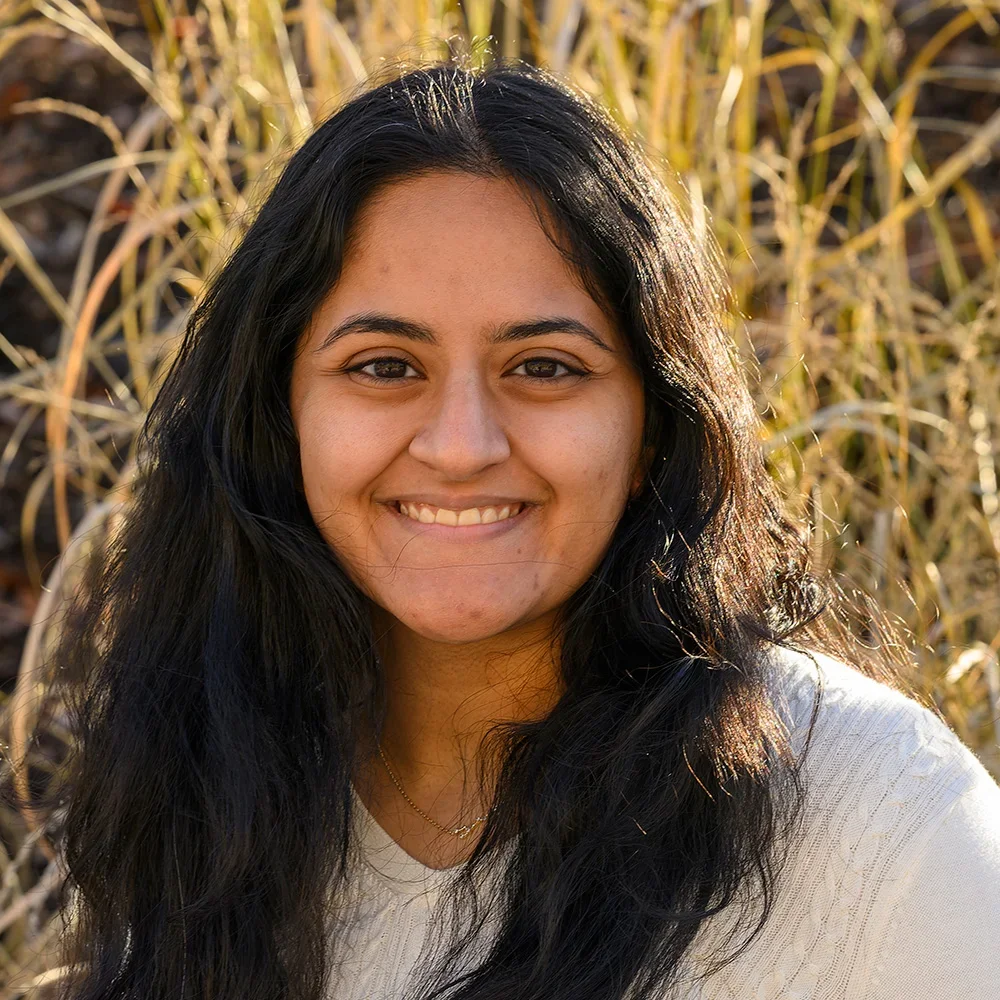
Sanjna Prasad
“The Systems Medicine master’s program was truly a transformative experience for me. I picked this program partially because the courses were interesting, but also because Dr. Vasudevan told me the faculty pushes you to think outside of the box.
The classes I took were unlike anything I had previously taken and allowed me to view healthcare from a different perspective. For example, we always hear about physician burnout in healthcare, but rarely do we discuss how the lack of interoperability between hospital systems impacts it, and how we can mitigate the issue using biomedical informatics. The first class that you take in the program goes into in-depth conversations about this exact topic and features corresponding talks from renowned faculty. But this was just the start. As you take the other required classes and electives, you learn about a variety of important databases and resources with Dr. Vasudevan in classes like clinical bioinformatics, and practice active learning skills while reading advanced research papers.
I continued to be impressed going into the second half of the program, particularly with the Genomics, Precision Medicine, and Policy class taught by Professor Peshkin and Innovation in Medicine taught by Dr. Parakh. While the first half of the program taught us about the impact of genes on diseases and the resource databases, the second half homed in on the actual application of the concepts and further emphasized personalized medicine.
One of the best aspects of the program is having Dr. Vasudevan as an advisor! She has been a personal cheerleader to each one of us, cares deeply about our wellbeing, and has pushed us to think and work differently in our respective fields.
Going into medical school following the completion of the master’s program, I’ve seen how well prepared I’ve been with dealing with the rigor of assignments, but also with genetic concepts. Many of the genes, disease pathways, and lab techniques that we’ve discussed in Systems Medicine are big parts of the Cell and Molecular Biology block of my first year. I’ve been able to follow lectures with relative ease when compared to my classmates who have not seen many of the concepts like pharmacogenomics, cytogenetics, etc. Additionally, the electives I’ve taken at Georgetown have been extremely helpful in my medical ethics and medical innovation class where the concepts overlapped.
Besides the unexpected plus of being extra prepared for the first block of medical school, the Systems Medicine program gave me the skill set and knowledge I would need to either pursue academia/research in computational medicine and genetics, or even to pursue a fellowship in medical genetics in the future. The skills and knowledge you glean from the program will inevitably result in you adapting your career plan as you learn about the newest tools/technologies necessary for precision medicine, learn how to become a Systems Thinker, and work towards revolutionizing healthcare.”
Sanjna Prasad (M.S. ’23)

Khushbu Shah
“There is so much left to do in the world.” As I approach almost two years as a Systems Medicine alum, Dr. Sona Vasudevan’s words echo in my mind daily. The path to medicine is one of grit, dedication, and curiosity. However, having the opportunity to learn under Dr. Vasudevan and the Georgetown Systems Medicine faculty has truly made me believe that I am capable of anything. No matter where I am in life, the lessons I’ve learned from her will continue to guide me at every step of my journey in both medicine and life.
During my time in the program (Fall 2022 – Spring 2023), I was navigating my way toward medical school. Fast forward to November 2024 when I received my first medical school acceptance! However, the journey wasn’t without its challenges – failures, imposter syndrome, and moments of doubt. Applying to medical school is a long process, full of waiting and uncertainty. During that time, I focused on filling my life with meaningful experiences that reminded me why this journey is worth every step. I worked as a medical scribe/medical assistant at a local urgent care, and spent the summer returning as head counselor to Sunrise Day Camp, a special place for children with cancer and their siblings. The resilience of these kids is truly empowering and another reason I will never give up. Most recently, I started working as a medical assistant in a dermatology office, using these next few months to continue exploring the various fields of medicine, building a routine, and getting into the right mindset for medical school.
The Systems Medicine curriculum is one that touches on every corner of medicine, ones I had minimal exposure to before taking these courses. Not only will I take the knowledge I gained about bioinformatics, analyzing big data, -omics, and precision medicine with me to medical school, but also tactical skills of presenting case base studies, deep diving into research articles, and performing my own research. As I embark on the path of Osteopathic Medicine I feel incredibly prepared with these tools I have gained from the program.
To incoming students, or anyone who’s finding their way, I want to say: take the leap! Start somewhere. You are capable of so much more than you think. Don’t let the fear of rejection define you — let it redirect you, and rise to what lies ahead. I will forever be thankful to Dr. V and the entire Systems Medicine family for being such an integral part of my journey.
Khushbu Shah (M.S. ’23)

Claudia Marie Sánchez-Beato Johnson
My journey to Dr. Vasudevan’s Systems Medicine program has been a blessing. During the dark days of the global pandemic, this program became a beacon of light for me. It didn’t just expand my academic knowledge—it completely transformed the way I view medicine. It taught me that knowledge isn’t just something to be absorbed; it’s something we have the power to create.
Within the traditional field of medicine, there’s a vast, untapped potential for innovation and
discovery—especially when approached with the right tools and mindset.
The Systems Medicine MS program is truly unique. It bridges biology, computational science,
and clinical research to give students a deeper understanding of how the human body functions
as an interconnected system. This holistic approach opened my eyes to new possibilities in
medicine. It empowered me to think critically, question the status quo, and tackle complex
problems, all while making a meaningful impact in biomedical research and beyond.
The heart of this program, though, is Dr. Vasudevan. Her mentorship has been nothing short of
life-changing. She doesn’t just guide students—she invests in us. She takes the time to
understand our goals, our strengths, and even our fears. Her unwavering support gave me the
confidence to face challenges head-on and to believe in my potential as a medical scientist. Dr.
Vasudevan doesn’t just teach systems medicine; she lives it. She embodies the values of
connection, innovation, and support, and I’ll forever be grateful for her encouragement, wisdom,
and belief in me.
The Systems Medicine program is so much more than a degree. It’s a family. It’s a place where
you’re supported, challenged, and inspired to grow into the best version of yourself. I’m deeply
proud to be a part of this community, and the lessons, skills, and relationships I’ve built here
continue to shape me every single day. Most importantly, this program showed me that
knowledge isn’t static—it’s dynamic and alive, waiting to be discovered and shaped. It’s given
me the tools
Claudia Marie Sánchez-Beato Johnson (M.S. ’22)

Pricilla Perry
“My time in the Systems Medicine program at Georgetown University was transformative. The program’s interdisciplinary approach deepened my understanding of the interplay between systems biology and precision medicine, equipping me with the tools to approach healthcare challenges innovatively. The collaborative environment, access to cutting-edge research, and mentorship from dedicated faculty not only sharpened my analytical and critical thinking skills but also reaffirmed my passion for advancing chronic disease prevention through personalized care. It was an invaluable experience that continues to shape my journey in nursing and beyond.”
Pricilla Perry (M.S. ’22)

Yeonjoo Hwang
“Having worked for 4 years after undergrad, Georgetown’s Systems Medicine program was exactly what I needed to move forward in my career in a meaningful way. In addition to core coursework on topics such as biomedical informatics, biostatistics, and metabolomics, I was able to tailor my experience through electives such as structural biology and medical biochemistry. During lectures from renowned leaders in both medicine and industry, I was able to participate in countless eye-opening discussions on the challenges that we face in medicine and the innovations that are being developed to tackle them. The Systems Medicine program had a huge influence on my passions and intellectual interests and significantly honed my ability to ask probing questions and brainstorm ways to solve complex problems. Importantly, I had the great privilege of having these academic experiences alongside a diverse cohort of peers. Both in and outside of class time, everyone was so willing to support each other and help each other learn, and it truly felt like a family. I made lifelong friendships during my time here, and I am extremely excited to see what everyone goes on to accomplish in the future.
Spearheading our program is Dr. Sona Vasudevan, who has been not only a valuable mentor, but also a true advocate for each one of us. Dr. Vasudevan connected me with research opportunities that allowed me to add new skills to my resume, and she encouraged me to apply for the NIH Graduate Data Science Summer Program, where I was able to apply my data science/stats background to study memory recall using EEG data and make lasting relationships with my lab at NIH/NINDS. Though I initially came into the program with plans to enter industry, my experiences throughout the year have inspired me to pursue further doctoral training. Dr. V was fully supportive of my decision and she helped me plan out my next steps regarding applications as well as the gap between graduation and the application cycle. During this gap, I will be working as a bioinformatics analyst to pursue many of my passions at once: using innovative data science applications to study inflammatory diseases like Crohn’s disease. I am forever grateful for Dr. V’s support and wisdom, as well as her unwavering devotion to both fostering a passion for making a positive impact and to helping us reach our goals. The Systems Medicine program has been life-changing for me in many ways, and I now look forward to taking these invaluable experiences with me as I pursue my endeavors in medicine and research!”
Yeonjoo Hwang (M.S. ’22)
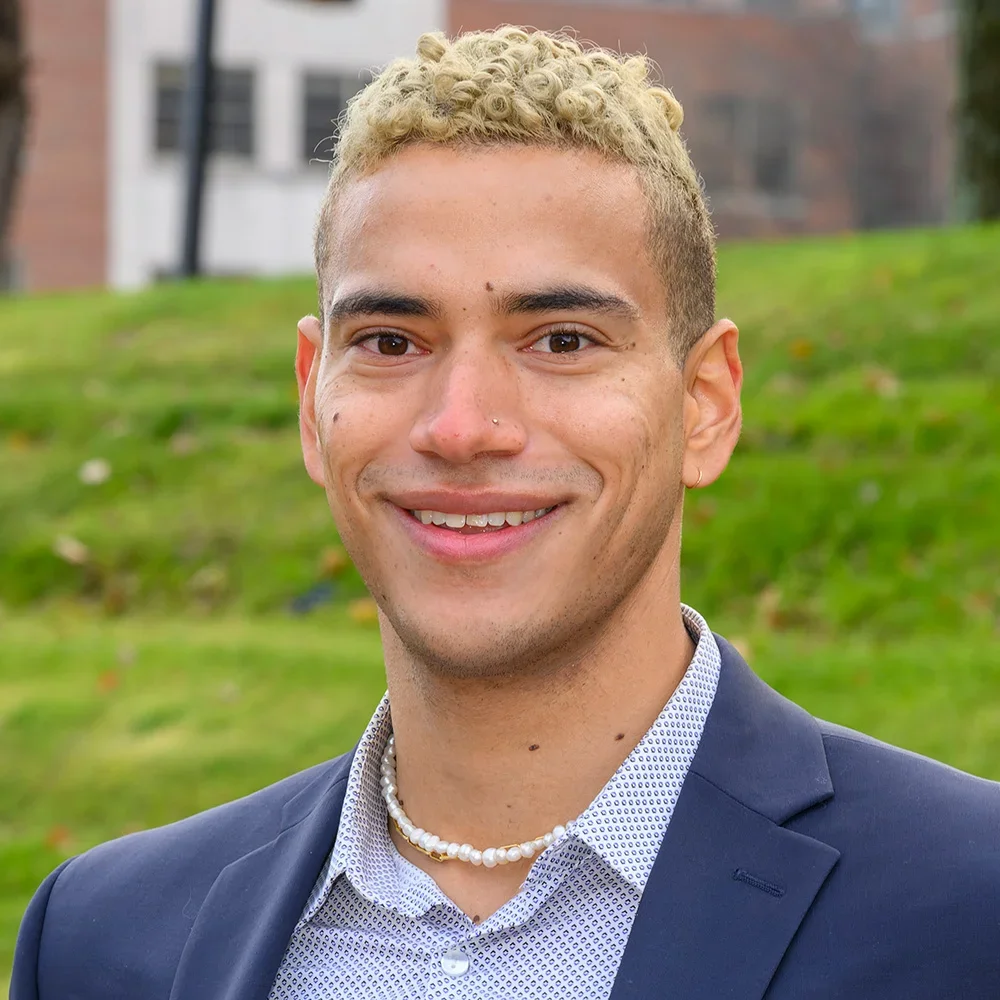
Cutler Simpson
“Being part of the Systems Medicine program has given me access to resources I never thought were possible, especially coming from a large state school where I was one student in a sea of many. One way Georgetown and the Systems Medicine program have benefitted me was when I casually mentioned my desire to have an international internship experience. This quickly turned into an opportunity to go to Kyoto as a Japan Society for the Promotion of Science fellow, where I had the opportunity to work on interesting work around identifying a candidate biomarker involved in heart failures in newborns.
On top of the work, being in Japan exposed me to a culture I had only heard about in the media before and pushed me out of my comfort zone, especially since I only had three Japanese lessons before arriving. Despite only being in Japan for a summer, I made lasting relationships with the other students and researchers in the lab and we continue to have a collaborative relationship. Thanks so much to the Systems Medicine program!”
Cutler Simpson (M.S. ’22)
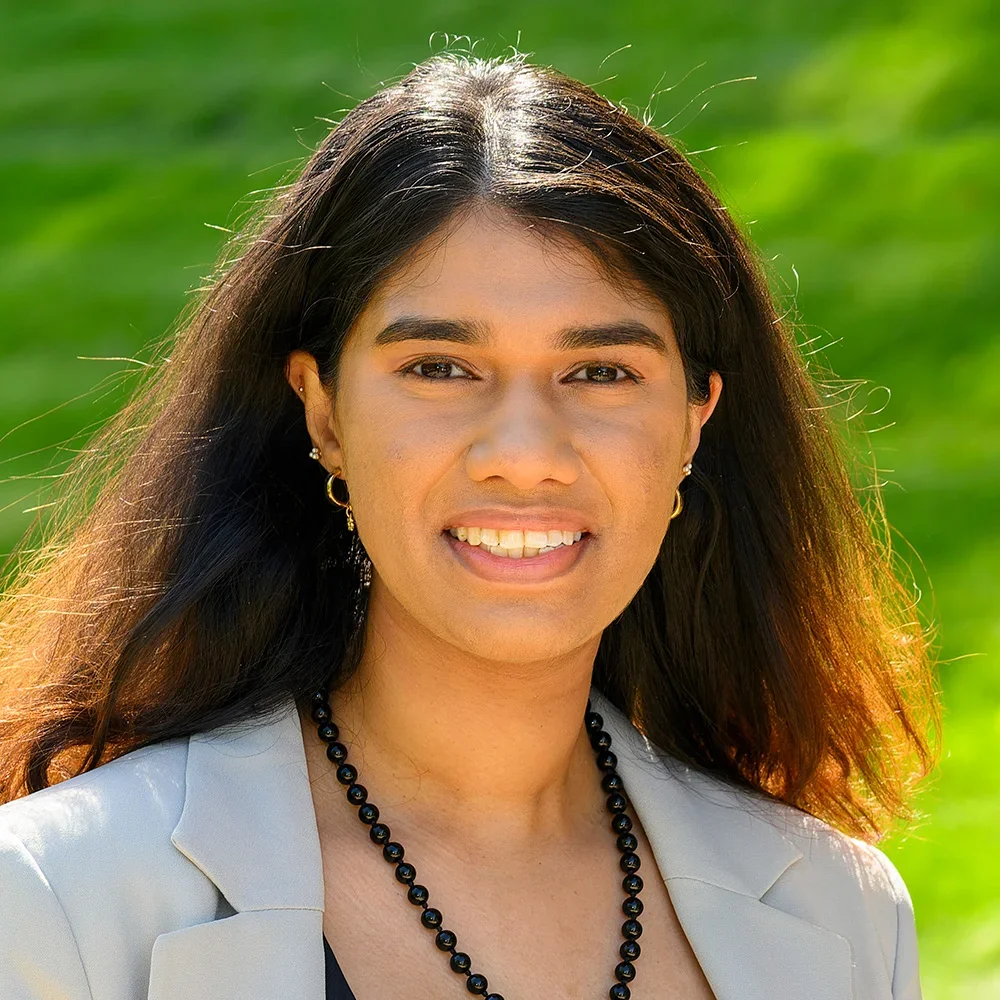
Arthi Bala
“After graduation I wanted to find a way to combine my interest in bioinformatics and my passion for medicine. My answer came in the form of Georgetown’s Systems Medicine program. The program was all I wanted and even more. The curriculum encompasses a diverse group of topics like biomedical informatics, innovation, and the microbiome. The bonus was that we were also able to hear from the leaders of the field and learn about the most recent discoveries.
I also enjoyed the learning and social environment that Systems Medicine had offered. The interdisciplinary nature of the program resulted in my cohort coming from a variety of different backgrounds. Their unique perspectives showed me different facets of medicine and everyone was very supportive of each other. Likewise, faculty were also supportive and very willing to help whenever there was a problem or question.
I am looking forward to bringing all that I have learned from the Systems Medicine program into my medical school journey. I hope to encourage others interested in medicine to take a look at systems medicine, because it truly is the future of medicine. If you want to be a part of the next revolution in medicine then the Systems Medicine program is perfect for you.”
Arthi Bala (M.S. ’22)
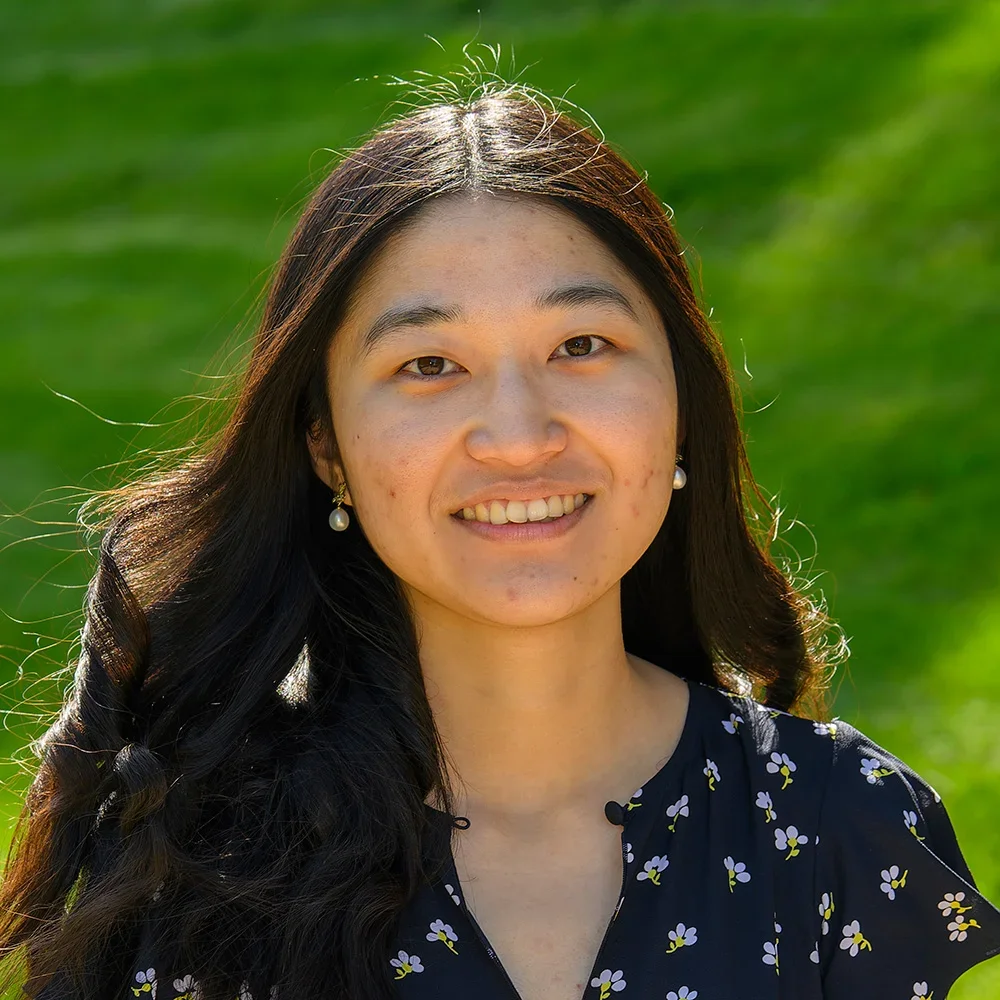
Jingyu Wu
“Choosing the Systems Medicine program at Georgetown University is the best decision I have made in my life. The program has not only introduced us the cutting-edge biomedical research, but also is an amazing opportunity to learn and connect with some of the most prominent scientists and physicians. As someone who had always wondered how bench research would practically apply to and benefit clinical settings, I found Systems Medicine is the program where the two are connected perfectly.
This one-year master’s program provides student the perfect amount of time to learn and obtain important knowledges and hands-on skills in fields such as bioinformatics, cancer genomics, and biostatistics, which are all incredibly useful and valuable in the burgeoning field of biochemistry and informatics. Moreover, the unique program curriculum including panel discussion and personalized capstone internship has not only challenged me to grow into an inquisitive scientist, but also has inspired me to critically think in a whole new dimension. The program has shaped my aspirations to do research, as well as helped me determine the specific research field I want to pursue in the future.
Our program director, Dr. Sona Vasudevan, and all the other faculty members are fully invested in each one of us and work tirelessly to help us reach our goals. Their dedication, love, compassion, and great examples have truly made the program one of its own kind on this entire planet, and the immense love and support coming from the Systems Medicine family are the reasons I excel with confidence no matter where I go or what I choose to do in life.”
Jingyu Wu (M.S. ’22)

Shanta Murthy
“I have had a wonderful time being a part of the Systems Medicine program over this past year. I am so grateful for all the guidance I have received from all of our professors. As students, we owe all of our success to our program director, Dr. Vasudevan, who has provided individualized attention to every student, is always available for her students, and strives to help make each student’s aspirations into reality.
Throughout this program, I have learned that systems medicine is a field that integrates multiple levels of information to develop a more comprehensive understanding of a disease and what may be the most suitable, personalized approach for caring for an individual patient. I have learned how systems medicine can be applied through studying gene mutations relevant to cancer or another disease, as well as integrating various analyses describing effects on the DNA, RNA, metabolome, microbiome, epigenetic factors, and structure. We have also had the opportunity to speak with researchers and medical professionals applying systems medicine to their work, including how pharmacogenomics can play a role in identifying effective therapies for patients. I have realized how the combination of these data-oriented approaches can make medical care more targeted and thus more beneficial for patients. This innovative approach to science and medicine was supplemented with thought-provoking discussions in nearly every class lecture as well as outside the classroom among peers and lecturers.
The internship was also pivotal for applying all the training we have received from all of the classes, including conducting biostatistics analysis using R, querying databases for relevant biological information, and critically reading and discussing scientific literature. In my particular project, I was able to develop and enhance my wet lab and computational skills in a project studying African
American men with advanced prostate cancer. I truly enjoyed the opportunity to engage in this field of cancer research. The diversity of internship projects students worked on is an indication of the broad application of the skills we have developed over this program.
Joining this program was the best decision I have made to date, and I am excited to apply all that I have learned in my research endeavors in the future!”
Shanta Murthy (M.S. ’22)

Alison Amar
“I am beyond grateful that I decided to join Georgetown’s Systems Medicine program. As someone who wanted to learn about medicine and biology but had no idea where I wanted to take my career, I can honestly say that the program opens your eyes to an entirely new side of medicine. The program is interdisciplinary and teaches us how to combine big data science with biology in order to use computational tools to achieve personalized medicine and healthcare. We learned about all of the levels of biology including genomics, proteomics, metabolomics, the microbiota, public policy, and more in a systems approach to medicine and healthcare.
The Systems Medicine faculty are truly the driving force behind the program. Each student gets a personalized experience and a very hands-on connection with the encouraging staff members. They gave consistently enriching lectures and were eager to provide us with additional resources or opportunities. We truly felt like a systems medicine family.
During my time in the program, I was mentored by a faculty member in the Department of Medicine where I learned how to use R programming to statistically analyze differences between disease groups and find driving variables between those differences. I am now working as a bioinformatics consultant where I will be using my analytical skills to help improve strategic innovations in the health sector of the federal government.”
Alison Amar (M.S. ’21)

Collin Campbell
“Enrolling in the Systems Medicine program was the best decision I’ve ever made. The program has opened my eyes to a new side of medicine, and it has shaped my passion and understanding of a systems approach to health. If there is anything that we can learn from the COVID-19 pandemic, it is that medicine is not a one-size-fits-all approach. Diseases manifest differently based on a variety of environmental and genetic factors, and this program helps you gain an understanding of this phenomenon.
In addition to the interdisciplinary curriculum, the faculty are invested in your success not only as a student, but also as a researcher, individual, and leader in the Georgetown community. It is important to know that you are joining a family. The faculty is committed to the long-term success of their students, and they will personalize your experience and go out of their way to help you reach your academic and professional goals.
The knowledge and skill sets that I developed throughout my time in the program have been invaluable so far in my professional career. During my capstone internship, I was mentored by the chief medical information officer at MedStar Health. I learned about pharmacogenomics and its utilization in clinical care, and my project findings provided statistical, real-world evidence for the potential need to implement genotype-guided therapy in a specific patient population. I was able to work alongside physicians and pharmacists to use my Systems Medicine mindset to craft, carry out, and present research that utilized clinical data to improve patient health outcomes.
The Systems Medicine program has provided me with amazing opportunities and an ability to contribute to solving 21st-century medical challenges. I am now working at the FDA as a bioinformatics data analyst, where I am using the skills that I gained from this program to advance precision medicine. I am forever thankful for the faculty and my Systems Medicine family. This program was truly one of the most rewarding experiences of my life.”
Collin Campbell (M.S. ’21)

Chaitan Mishra
“When covid took over our last months of college, I was filled with sentiments of worry and fear. I sent in my Systems Medicine application, not knowing what my future was holding, not knowing if my friends and family would be safe, and especially not knowing what systems medicine was. Little did I know that this program would not only change the way I view medicine but change my perspective towards life in general. My time in the program was highlighted by outstanding professors, advisors, and mentors whose unwavering dedication to our success lit a flame of inspiration within each of us students. The continued investment by the faculty made the Systems Medicine program not only an educational experience but an environment that fostered growth, development, and bonding. Instead of students, we became a family growing together.
The interdisciplinary teachings of Systems Medicine exposed us to novel practices that have revolutionized personalized disease risk and management. Through analyzing the proteomic, metabolomic, and transcriptomic levels and their complexities within disease pathology, I was shown the differences in treatment of an individual rely on a patient’s uniqueness. Taking these disciplines into account has tremendously helped my current research at the National Institutes of Health (NIH), where I now work. The skills and understanding of in-depth systems biology have allowed me to draw many inferences that have benefited my time at the NIH.”
Chaitan Mishra (M.S. ’21)

Rhea Bhatt
“The Systems Medicine program is a truly unique program that offers students exposure to study and learn at the intersection of clinical care, research, and data. It offers a personalized experience within the larger Georgetown University Medical Center ecosystem for students to explore their interests and find a niche at the frontier of healthcare.
The Systems Medicine program enabled me to develop a new skill set that is incredibly relevant for the future of patient-centered care. While acknowledging the importance of clinical and genomic data integration, the Systems Medicine program helped me to establish a foundation of a preventative, predictive, personalized approach to healthcare. I was able to work within a team of radiation oncologists at Medstar Georgetown University Hospital to explore sociodemographic factors that impact Stage IV breast cancer presentation in the United States. From this experience, I came away with a new skill set and familiarity with clinical informatics. Simultaneously, I was exposed to complexities of data sharing, access to care, and differences in outcomes.
Despite the disruption to a virtual learning environment as a result of the COVID-19 pandemic, our professors maintained the rigor of the curriculum and commitment to supporting us in our next steps. Classes were transitioned online seamlessly to ensure continuity of instruction and learning.”
Rhea Bhatt (M.S. ’20)
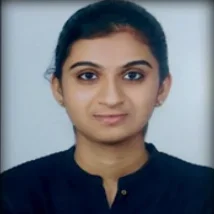
Sushma Maddipatla
“For someone like me who has always been fascinated by science, the Systems Medicine program was a precious gift for advancing my career. Georgetown University’s “cura personalis” approach is the essence of this program. It is recognized in medicine that the “one-size-fits-all” approach can be improved upon, but it is easier said than done. Who would have thought this point will come out so forcefully in the search for competing medications, and their varied effects on patients, to stop the spread of COVID-19? One of the hallmarks of this program is its strong emphasis on the cura personalis approach to thinking about medicine and the courses are aligned with this idea. Course work covers -omics and its interaction with external factors such as microbiota, environment, and diet in different disease studies, and analyzing BIG Data using informatics concepts and machine learning with tools such as R using publically available databases. Critical reading of research articles and biomolecular structural studies is emphasized. Lectures by several eminent scientists gave me a view of what is happening at the frontiers. Our Director and my mentor, Dr. Vasudevan, taught me invaluable skills that allowed me to be employed as an informatics analyst at the prestigious Emory University’s Pediatric Department and work for a renowned scientist and physician. Without the Systems Medicine program, this would not have been possible for me.”
Sushma C. Maddipatla (M.S. ’19)
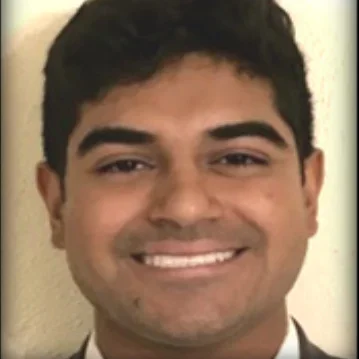
Haris Pepermintwala
“The Systems Medicine program at Georgetown was an amazing experience and taught me so much about aspects of precision medicine that I had never even heard of before. Dr. Vasudevan is the best advisor I have ever had, and she makes the program what it is. I always get questions about the Systems Medicine program during my interviews and I know that doing this program has helped my career.”
Haris Pepermintwala (M.S. ’19)
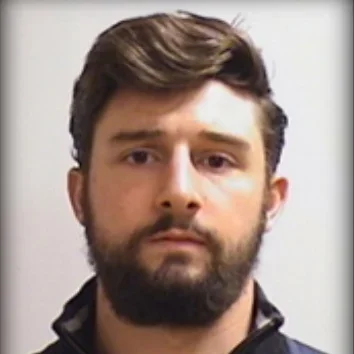
Brandon Buonaiuto
“Studying Systems Medicine was one of their best decisions I have made for my medical career. The Georgetown Community and resources made available are a true privilege and second to none. The faculty of this program is extremely considerate and invested in not only student success during the program but also the long-term success and fulfillment of student goals. As a current medical student Systems Medicine has advanced the way that I am able to consider and understand the material I learn. Thinking about medicine in the context of big data, and regarding the social and ethical issues that face the field with an understanding of a systems perspective allows me to have a unique point of view.
This program has majorly shaped my aspirations in practicing medicine and has opened up doors to amazing opportunities, networks of people, and lasting relationships with mentors and classmates. During medical school interviews, my studies were a major topic of interest and discussion because this program made me stand out as a candidate, by offering me a perspective that is unique to Systems medicine students. As technology and the data that follows rapidly advances and accumulates systems medicine is more and more so necessary for health professionals to serve efficiently and optimally. Bridging the gaps between disciplines, operating platforms, and issues is the power that comes with systems medicine. Understanding patients thoroughly on a scientific basis through the “omics” such as genomics, metabolomics allows us to advance our ability to truly deliver precision medicine. I am forever thankful and connected to my Systems Medicine family!”
Brandon Buonaiuto (M.S. ’19)
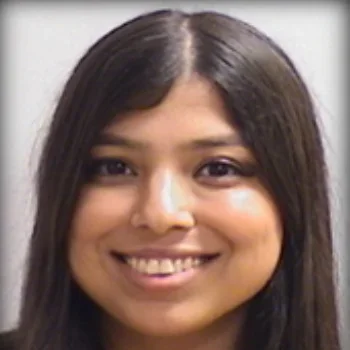
Arezo Aziz
“Healthcare providers possess incredible skills to prevent, heal, and manage diseases, and this is something that I have always dreamed of doing. However, when I found that there is still much we do not fully understand in the clinical realm despite past scientific successes and rapidly growing technologies, I realized that we have a long way to go before we can truly provide precise and effective care to all. My degree in Systems Medicine has armed me with the necessary tools and knowledge that I need to face uncertainties head-on and provide meaningful, inclusive care to patients as a future nurse practitioner.”
Arezo Aziz (M.S. ’19)
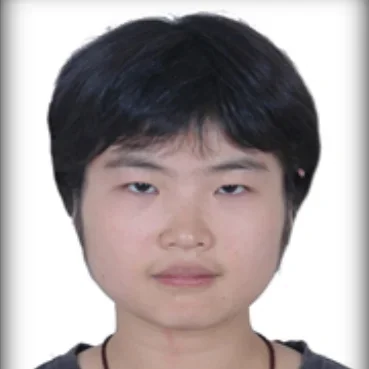
Xu Huang
“The Systems Medicine Program at Georgetown University provides courses covering almost every aspect we need to fill the gap between bench work and clinical practice. We have Introduction to Genomic Medicine to learn about how genetics interferes with medical decisions such as prescription selection, screening tests for different people, prediction model guided treatments; Biomedical Informatics to learn about different information resources used by the healthcare providers, how different systems are intergraded to clinics and how we can improve them; we have Structural Biology, Biochemistry to understand principle of biomedicine; Personalized Medicine to learn and practice Omics techniques; different omics application classes (Clinical Metabolomics, Clinical Applications of the Microbiota), informatics classes(Cancer Bioinformatics, Translational Bioinformatics, Clinical Bioinformatics) as well as computational and statistical analysis classes (Machine Learning for Biomedical Data, Application of Biostatistics to “BIG DATA”) to prepare students become omics experts to help to advance medicine. Students graduated from the program can have multiple career choices in the biomedical field. They can go to medical school and become a physician with system thinking, they can become bioinformatician and biostatistician help analyzing biomedical data and translate the biomedical findings, they can become research associates performing the omics-technologies, etc.
I became a medical informatics analyst in a regional health care system after graduation. What I benefit the most from the program is the Biomedical Informatics class I took during the first semester when I joined the program. Thanks to the class, I was exposed to the all the knowledge I would need for my job and cannot learn elsewhere (Electronic Health Record (EHR) systems, RedCap, the infostructure of the healthcare system, the privacy, confidentiality and security, mobile health implementation, interoperability, and standards), I became a RedCap Administrator starting to answer phone calls to physicians, pulling data from the EHR for analysis, designing databases for data collection the second day I joined MedStar. People were surprised how I picked up things that quickly, I would say it’s because the Systems Medicine Program had prepared me well to fill this gap between biomedical research and medical practice with system thinking.”
Xu Huang (M.S. ’19)

Anas Belouali
“My time at the Systems Medicine Master’s program was a great learning opportunity to grow and develop my career. It was a well-rounded and interdisciplinary program that harness the power of different fields to teach students how to draw complex conclusions in the medical field.”
Anas Belouali (M.S. ’18)
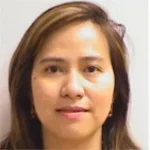
Khuyen Mai
“I was trying to figure out a way to stay engaged with current topics in the biomedical and healthcare fields, and Systems Medicine helped me achieve just that! I am deeply grateful to Dr. Sona Vasudevan for the extraordinary learning opportunity. Under her leadership, the program had enabled me to gain a better understanding of how clinical data is managed and understood to analyze the health of the individual patient, a leap in providing personalized care to our society.”
Khuyen Mai (M.S. ’18), currently at Georgetown University

Henry Walch
“The Systems Medicine program taught me the value of big data and showed me how it can be applied to questions in medicine and translational research. Systems Medicine cemented my interest in pursuing a career in medicine. The program shows students how various -omic fields can be applied in a clinical environment. The Systems Medicine program offered me a variety of opportunities to learn how genomics research is impacting patient care. I was taught skills that were incredibly useful for my career after I graduated.”
Henry Walch (M.S. ’18)
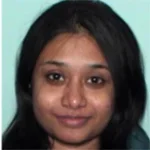
Vaishnavi Narayan
“For someone who is new to the American academic system, Systems medicine and Georgetown gave me all the confidence to pursue higher goals in Healthcare. The program has shaped my aspirations to do research and pursue a medical career.”
Vaishnavi Narayan (M.S. ’18)
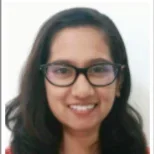
Archana Hari
“For a student looking towards a career in Medical research, the prime question is what program to get a Master’s in. And at such a point in life, the best program would be one that provides an overview of every field in Medicine that requires researchers. The Master’s in Systems Medicine did exactly that. The program perfectly integrates every “Omics” data out there and helps understand every aspect of health care from the molecular level to the Policy level. I was given every opportunity to go out of my way and know more about what is being taught and to perform the best. This program helps transition into any Medical Science and helps us think in multiple dimensions, which is essential for research. One of the biggest exposures that SYSM gave me was the experience of interning under a physician. I worked with Dr. Baranuik at the Central Research Unit, where we interacted with patients and was given real patient data for my project. Connecting with the patients made me realize the power and importance of research. SYSM was my stepping stone to a PhD. If you are driven towards saving lives and making an impact on society, you know this is the right program for you.”
Archana Hari (M.S. ’17)
M.D./M.S. Alumni

Mario Giovacchini
“I was extremely pleased to be accepted into the Systems Medicine program during my first year of medical school at GUSOM. The courses included everything from Epidemiology to Applied Biostatistics in R to learning how to write a good IRB proposal. It was everything I needed to feel confident that I could meaningfully contribute as a member of a clinical research team, and I have already used many of the skills I learned from this program in real-life research. I remember the first time a PI asked me if I knew how to do a particular kind of data analysis and I could answer, “Yes! They taught me how to do this exact thing in class!” I continue to build on the foundational concepts I learned in this program and still refer back to my notes, presentations, and textbooks today. Doing research is such an important part of building a good CV for residency applications and beyond, and more importantly, I now have the skills I need to be able to formulate my own research questions and to begin finding out the answers.”
Mario Giovianni (M.D./M.S. ’17)
“In the traditional curriculum, medical students are not being trained to meaningfully interpret the ‘big data’ that is generated from advanced clinical informatics and ‘-omics’ technologies. I decided to study Systems Medicine in order to be prepared to serve my patients in this data-rich biomedical and clinical environment. Every oncologist and pathologist, and many other types of physician-scientists, will need this training in the near future. For the good of our patients, physicians like me will need to make sense of this data when it crosses our desks…”
Sister Grace Miriam Usala (M.D./M.S. ’16)
“I believe the masters in systems medicine was the impetus for much of my research interest and activities thereafter. It provided a broad education in the ways that so many factors influence health beyond what is currently employed as diagnostics tests in medicine. In the years since completing my masters’ degrees, I have employed much of the knowledge gained in “omics”, statistics, and bioinformatics to both augment my own research and understand the literature in oncology. I am grateful for the chance to have studied these topics in medical school and have since returned to teach in the program as well.”
Nima Aghdam (M.D./M.S. ’16)